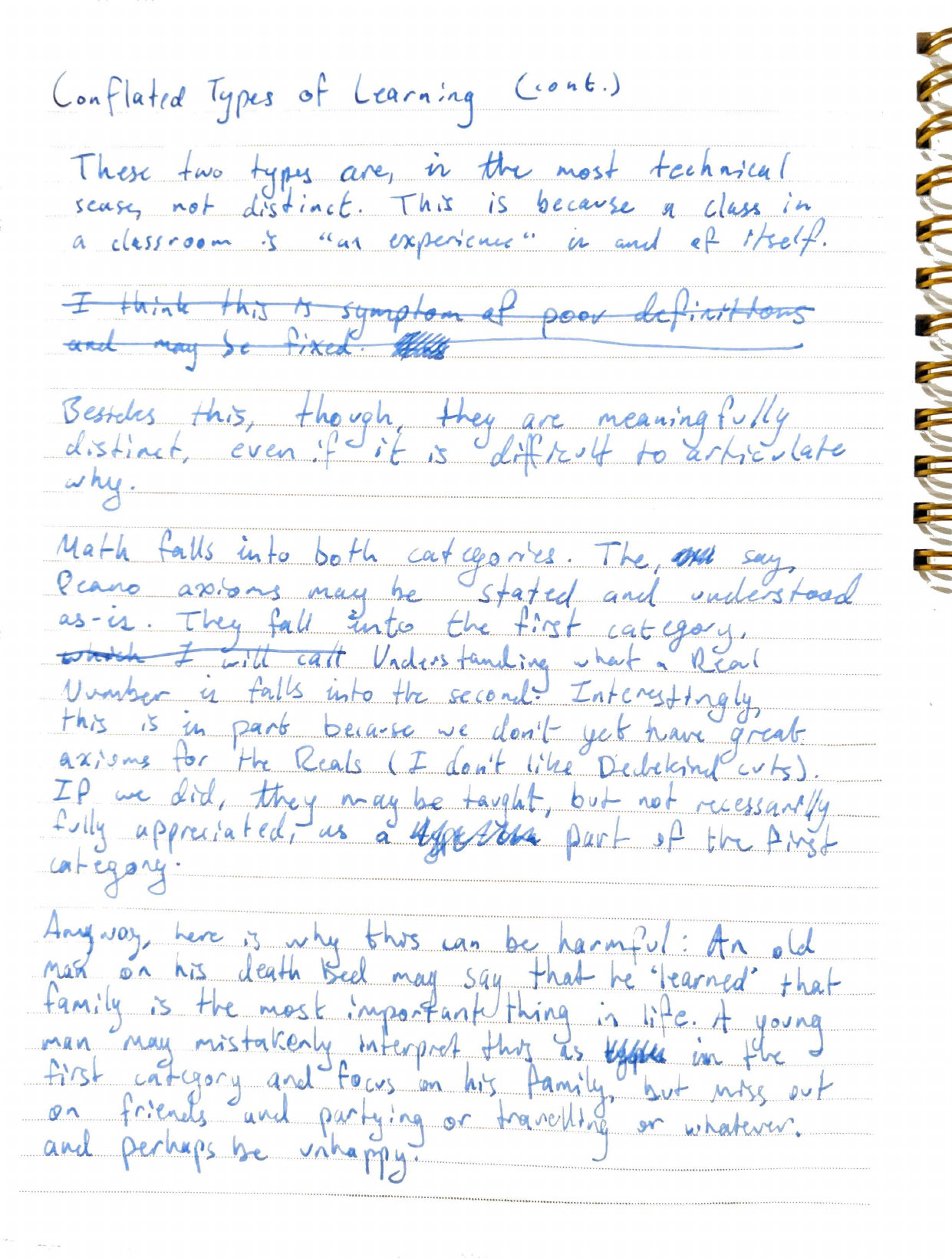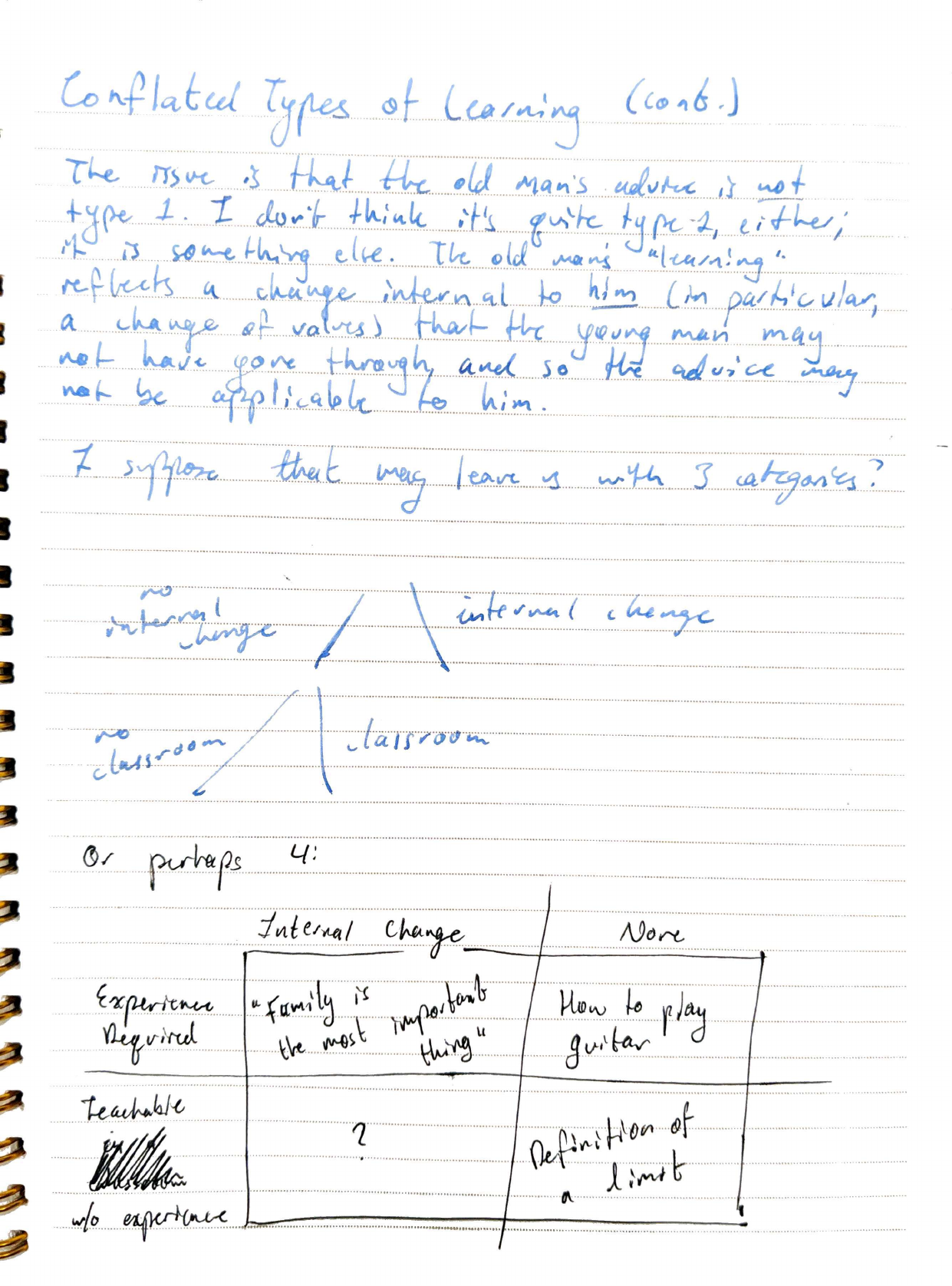continued from page 60
These two types are, in the most technical sense, not distinct. This is because a class in a classroom is "an experience" in and of itself.
Besides this, though, they are meaningfully distinct, even if it is difficult to articulate why.
Math falls into both categories. The, say, Peano axioms may be stated and understood as-is. They fall into the first category. Understanding what a Real Number is falls into the second. Interestingly, this is in part because we don't yet have great axioms for the Reals (I don't like Dedekind cuts) haha. If we did, they may be taught, but not necessarilly sic fully appreciated, as a part of the first category.
Anyway, here is why this can be harmful: An old man on his death bed may say that he 'learned' that family is the most important thing in life. A young man may mistakenly interpret this as in the first category and focus on his family, but miss out on friends and partying or travelling or whatever, and perhaps be unhappy.
The issue is that the old man's advice is not type 1. I don't think it's quite type 2, either; it is something else. The old man's "learning" reflects a change internal to him (in particular, a change of values) that the young man may not have gone through, and so the advice may not be applicable to him.
I suppose that may leave us with 3 categories?
Diagram of a binary tree. At the top-level, the branches are labelled "no internal change" and "internal change". The "no internal change" further branches into "no classroom" and "classroom". Presumably, the leafs nodes are to be interpreted as the categories.
Or perhaps 4:
Diagram of the matrix {"Internal Change", "None"} × {"Experience Required", "Teachable w/o experience"} with examples in 3/4 boxes.

